Dog Laws in New Hampshire
Owning a dog is a rewarding experience, but it comes with important responsibilities. Understanding dog laws in New Hampshire is crucial for ensuring the safety and well-being of your furry companion, other animals, and the community.
These laws cover a wide range of topics, from licensing and vaccination requirements to leash laws and waste disposal regulations. By learning and following these guidelines, you can be a responsible pet owner and contribute to a harmonious environment for everyone.
Table of Contents
Dog Bite Laws in New Hampshire
Dog bites can be a serious and traumatic experience, leaving both physical and emotional scars. In New Hampshire, understanding the state’s dog bite laws is crucial for both dog owners and victims of dog attacks. These laws outline the legal framework for determining liability, compensation, and preventative measures.
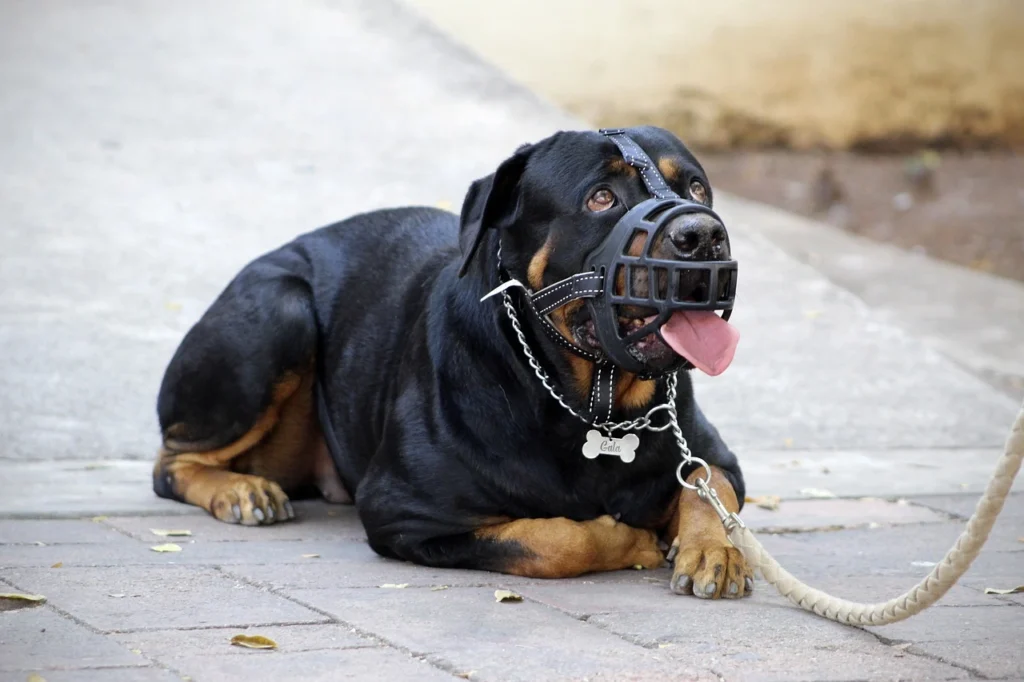
Strict Liability for Dog Bites
New Hampshire follows a strict liability law for dog bites, meaning the owner is automatically responsible for any injuries caused by their dog, regardless of the owner’s knowledge of the dog’s propensity to bite. This differs from “one-bite” states, where the owner might only be liable after the first bite.
This law is enshrined in N.H. Rev. Stat. Ann. § 466:19, which states:
“Any person who is injured or whose property is damaged by a dog shall have a cause of action against the owner or keeper of such dog, unless the damage was caused by a person who was engaged in the commission of trespass or other torts.”
This means that victims of dog bites in New Hampshire have a strong legal standing to seek compensation for their injuries, including medical bills, lost wages, and pain and suffering.
Exceptions to Strict Liability
While the law generally imposes strict liability, there are a few exceptions:
- Trespassing: If the victim was trespassing on the owner’s property at the time of the bite, the owner may not be held liable.
- Provocation: If the victim provoked the dog, such as by teasing or hitting it, the owner’s liability may be reduced or eliminated.
- Self-Defense: If the dog was acting in self-defense or protecting its owner, the owner may not be held liable.
It’s important to note that these exceptions can be complex and require careful legal analysis. Consulting with an attorney specializing in animal law is recommended if you are unsure about your rights or responsibilities in a dog bite case.
Statute of Limitations
The statute of limitations for filing a dog bite lawsuit in New Hampshire is three years from the date of the incident. This means that victims must file their claim within this timeframe to pursue legal action.
Additional Dog Laws in New Hampshire
Beyond the strict liability for dog bites, New Hampshire has other laws in place to promote responsible pet ownership and public safety:
- Leash Laws: Dogs must be leashed in public places, including parks, sidewalks, and trails.
- Licensing: All dogs over four months old must be licensed with the local animal control office.
- Vaccination Requirements: Dogs must be vaccinated against rabies and other diseases.
- Dangerous Dog Designation: Dogs deemed dangerous by animal control officers may face additional restrictions, including muzzling and confinement.
By understanding and complying with these laws, dog owners can significantly reduce the risk of dog bites and ensure the safety of their communities.
Seeking Help After a Dog Bite
If you or someone you know has been bitten by a dog, it’s crucial to take the following steps:
- Seek medical attention immediately: Even minor bites can become infected, so prompt medical care is essential.
- Report the incident: Contact animal control to report the bite and ensure the dog is properly assessed.
- Document the incident: Take pictures of the bite, the dog, and the scene of the incident.
- Consult an attorney: An experienced personal injury lawyer can advise you on your legal rights and help you pursue compensation for your injuries.
Dog Barking and Noise Laws in New Hampshire
Dogs are beloved companions, but their barking can sometimes disrupt the peace and tranquility of a neighborhood. New Hampshire, like many states, has laws in place to address excessive dog barking and other noise issues. Understanding these laws is crucial for both dog owners and residents to ensure a harmonious environment for everyone.
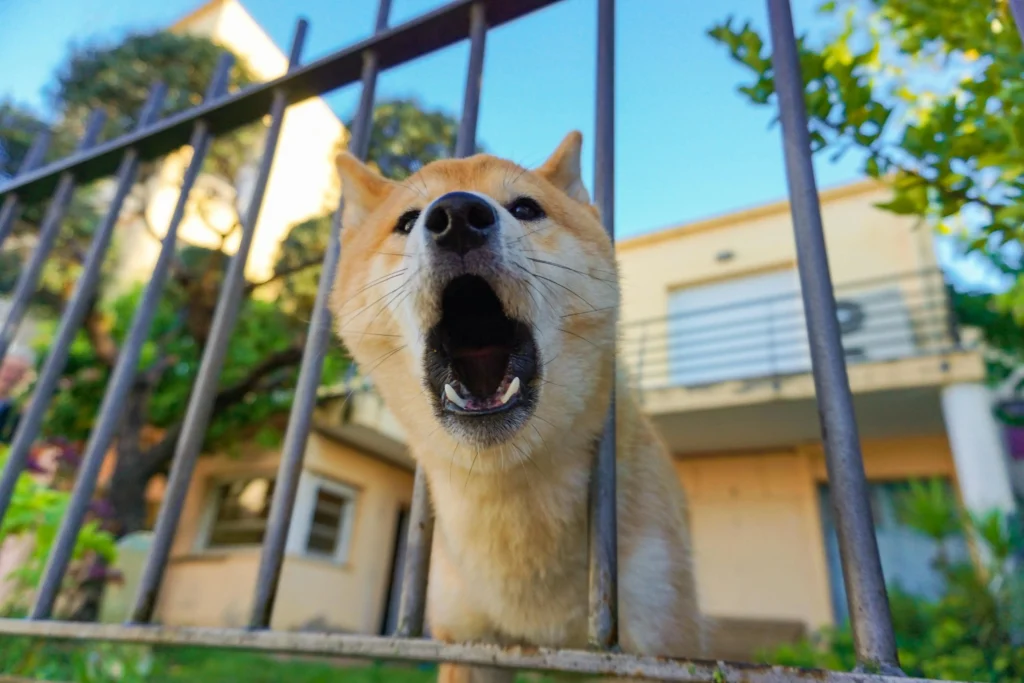
New Hampshire State Law
The primary state law governing dog barking and noise in New Hampshire is N.H. Rev. Stat. Ann. § 466:31. This law states that it is illegal for a dog to:
- Bark continuously for more than 30 minutes: This applies to both daytime and nighttime hours.
- Bark during the night hours in a way that disturbs the peace and quiet of the neighborhood: Night hours are generally considered to be between 10:00 pm and 7:00 am.
- Cause other excessive noise: This includes howling, whining, or any other loud vocalizations that disrupt the peace.
Exceptions:
- Working Dogs: Dogs actively guarding livestock or working in other official capacities are exempt from these restrictions.
Additional Local Ordinances
While the state law provides a general framework, many towns and cities in New Hampshire have their own ordinances regarding dog barking and noise. These local ordinances may have:
- Specific noise limits: Some towns may have stricter noise limits than the state law, or they may define “night hours” differently.
- Additional restrictions: Local ordinances may address other noise-related issues, such as the use of bark collars or the presence of nuisance animals.
It’s crucial for dog owners to check with their local animal control office or town clerk to understand the specific regulations in their area.
Addressing Excessive Dog Barking
If you are experiencing excessive dog barking in your neighborhood, here are some steps you can take:
- Speak to the dog owner directly: A friendly conversation with the owner can often resolve the issue. Explain the problem and suggest potential solutions, such as providing more exercise or addressing underlying anxieties the dog may have.
- Contact animal control: If the issue persists, you can file a complaint with your local animal control office. They will investigate the situation and may issue a warning or citation to the owner.
- Mediation: Some towns offer mediation services to help resolve dog barking disputes between neighbors.
Tips for Responsible Dog Ownership
As a dog owner, you can take steps to minimize barking and noise disturbances:
- Provide adequate exercise and mental stimulation: A tired and bored dog is more likely to bark. Regular walks, playtime, and training sessions can help channel their energy and reduce excessive barking.
- Address underlying causes: If your dog barks due to separation anxiety, fear, or other triggers, consult with a veterinarian or animal behaviorist to develop a training plan.
- Use positive reinforcement: Reward your dog for quiet behavior and discourage barking with verbal corrections or gentle redirection.
- Consider bark collars: Anti-bark collars can be a helpful tool in some cases, but they should be used humanely and only after addressing the underlying causes of barking.
Dog Poop Disposal Laws in New Hampshire
Responsible dog ownership extends beyond providing love and care; it also involves ensuring the health and cleanliness of our communities. Dog poop, while a natural part of pet ownership, can pose significant environmental and health risks if not disposed of properly. New Hampshire, like many states, has laws in place to address this issue and promote responsible pet waste management.

State Laws
The primary state law governing dog poop disposal in New Hampshire is N.H. RSA 480:13. This law states that:
- Dog owners are responsible for picking up and disposing of their dog’s feces: This applies to all public and private property, including sidewalks, parks, trails, and even your own yard.
- Failure to pick up dog poop is a violation of the law: This can result in fines or other penalties depending on the specific circumstances and local ordinances.
Local Ordinances
While the state law provides a general framework, many towns and cities in New Hampshire have their own ordinances regarding dog poop disposal. These local ordinances may:
- Specify the method of disposal: Some towns may require dog poop to be placed in designated waste receptacles or bagged and disposed of in regular trash bins.
- Impose stricter penalties: Local ordinances may have higher fines or more severe consequences for violating dog poop disposal laws.
- Address specific areas: Some towns may have stricter regulations in certain areas, such as parks or beaches.
It’s crucial for dog owners to check with their local animal control office or town clerk to understand the specific regulations in their area.
The Importance of Responsible Dog Poop Disposal
Dog poop is more than just an eyesore; it poses several significant risks:
- Environmental Contamination: Dog waste contains harmful bacteria and parasites that can contaminate water sources and soil. This can lead to the spread of diseases in humans and animals, and negatively impact the health of our ecosystems.
- Public Health Hazards: Stepping in dog poop can expose individuals to harmful pathogens, especially children and individuals with compromised immune systems.
- Aesthetic Concerns: Uncollected dog poop creates an unpleasant and unsanitary environment for everyone in the community.
Tips for Responsible Dog Poop Disposal
As a responsible dog owner, you can play a crucial role in keeping your community clean and healthy:
- Always carry poop bags: Make it a habit to carry poop bags on every walk and have them readily available when you’re outside with your dog.
- Pick up immediately: Don’t leave dog poop behind, even in your own yard. Pick it up promptly and dispose of it properly.
- Double bag for extra protection: This is especially important in areas frequented by children or near water sources.
- Dispose of waste responsibly: Place bagged dog poop in designated waste receptacles or dispose of it in your regular trash bin.
- Spread awareness: Encourage other dog owners to be responsible by picking up after their pets and reminding them of the importance of proper disposal.
Dog Licensing Laws in New Hampshire
Owning a dog is a joy, but it also comes with responsibilities. One crucial responsibility is ensuring your furry friend is properly licensed in accordance with state and local laws. Dog licensing in New Hampshire plays a vital role in animal welfare, public health, and community safety.

State Laws
The primary law governing dog licensing in New Hampshire is N.H. RSA 466:1. This law mandates that:
- All dogs four months of age or older must be licensed annually: This applies to all dogs, regardless of breed or living situation.
- Licenses are valid for one year: The licensing period runs from May 1st of each year to April 30th of the following year.
- Licenses are issued by the town or city clerk: You can typically obtain a license at your local town hall or online through the town’s website.
- Licenses must be renewed annually: Failure to renew your dog’s license can result in fines or penalties.
Required Documentation
Before obtaining a license, you must provide the following documentation:
- Proof of Rabies Vaccination: A current rabies vaccination certificate is mandatory for all dogs.
- Spay/Neuter Certificate (Optional): If your dog is spayed or neutered, you can provide a certificate for potential discounts on licensing fees.
License Tags and Identification
Once your dog is licensed, you will receive a metal tag with the following information:
- Name of the city or town
- Year of license issue
- Registered number
This tag should be attached to your dog’s collar for easy identification.
Benefits of Dog Licensing
Dog licensing offers several benefits for both dog owners and communities:
- Animal Welfare: Licensing helps track dog populations and ensure proper vaccination records, contributing to animal health and safety.
- Public Health: By ensuring dogs are vaccinated against rabies, licensing helps prevent the spread of this potentially fatal disease.
- Community Safety: Licensed dogs are easier to track down in case of lost or missing pets, promoting responsible pet ownership.
- Financial Support: Licensing fees often contribute to animal shelters, animal control services, and other programs that benefit animal welfare in the community.
Additional Considerations
While the state law provides a general framework, some towns and cities may have additional regulations or requirements regarding dog licensing. It’s recommended to check with your local animal control office or town clerk for specific details in your area.
Here are some additional points to keep in mind:
- New Residents: If you move to New Hampshire with your dog, you must license them within 30 days of arrival.
- Lost or Stolen Licenses: If your dog’s license is lost or stolen, you can obtain a replacement from your local town clerk.
- Fines and Penalties: Failure to license your dog can result in fines or other penalties, depending on the specific circumstances and local ordinances.
Dog Leash Laws in New Hampshire
While New Hampshire doesn’t have a statewide leash law, responsible dog ownership means understanding and adhering to local leash regulations. Leash laws are crucial for ensuring the safety and well-being of both dogs and the community.
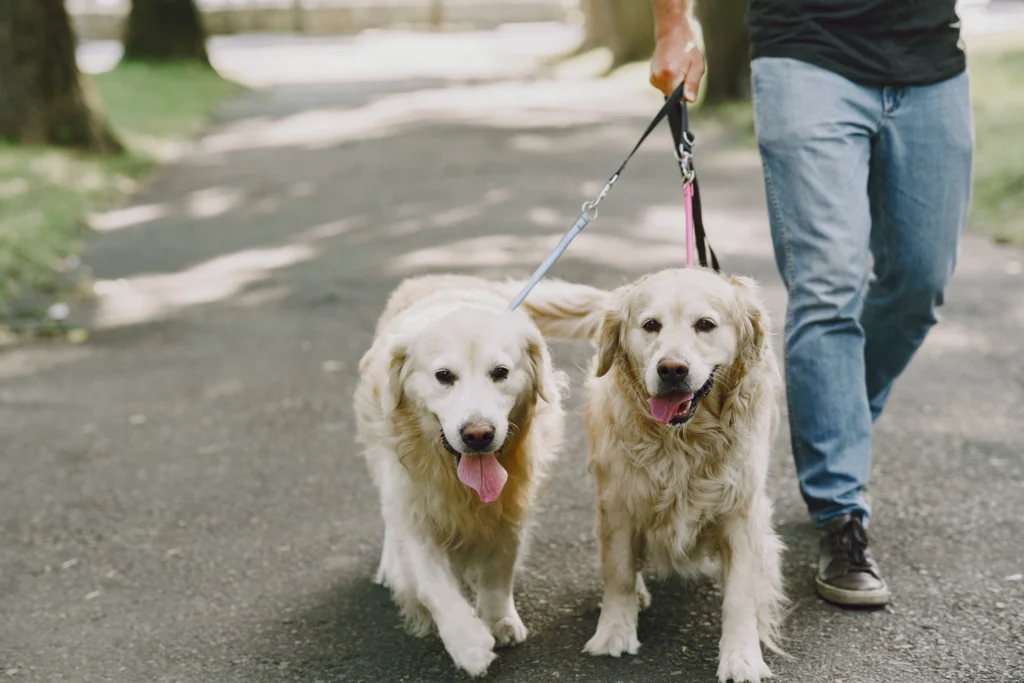
State vs. Local Regulations
New Hampshire takes a decentralized approach to dog leash laws. Instead of a single state-wide mandate, individual towns and cities set their own leash requirements. This means that leash regulations can vary significantly depending on your location.
Here’s what you need to know:
- No Statewide Leash Law: New Hampshire doesn’t have a blanket law requiring dogs to be on leashes in all public spaces.
- Local Control: Each town and city has the authority to enact its own leash ordinances, which may specify leash requirements in various areas like parks, sidewalks, and public buildings.
- Importance of Local Research: It’s crucial to check with your local animal control office or town clerk to understand the specific leash laws in your area.
Common Leash Regulations in New Hampshire Towns
While specific details may differ, many New Hampshire towns and cities have similar leash regulations:
- Leash Requirements in Public Spaces: Leashes are often mandatory in public spaces like parks, trails, sidewalks, and public buildings.
- Length Restrictions: Leash length limitations may be imposed, ranging from 6 feet to 10 feet or more.
- Voice Control Exceptions: Some towns allow voice control of well-trained dogs in designated areas, but the dog must remain under the owner’s immediate control.
- Specific Exemptions: Working dogs, such as service animals or those assisting law enforcement, may be exempt from leash requirements while performing their duties.
Importance of Responsible Dog Ownership
Even in the absence of a statewide leash law, responsible dog owners should prioritize leashing their dogs in public spaces for several reasons:
- Safety: Leashes prevent dogs from running into traffic, approaching other animals or people unexpectedly, or getting lost.
- Public Health: Leashes help control the spread of dog waste and potential diseases.
- Community Harmony: Leashed dogs create a more comfortable and enjoyable environment for everyone using public spaces.
Tips for Responsible Dog Ownership in New Hampshire
- Research Local Leash Laws: Before venturing out with your dog, familiarize yourself with the specific leash regulations in your town or city.
- Always Carry a Leash: Make it a habit to carry a leash with you whenever you’re outside with your dog, even if you’re unsure of the local regulations.
- Use a Leash in Public Spaces: Even if voice control is permitted in certain areas, err on the side of caution and leash your dog in public spaces for safety and courtesy.
- Be a Responsible Pet Owner: Respect local leash laws and contribute to a safe and harmonious community for all.
Dangerous Dog Laws in New Hampshire
In New Hampshire, specific laws address the designation and management of dangerous dogs to ensure public safety and responsible pet ownership. These laws aim to prevent dog attacks and promote responsible behavior from dog owners.

Understanding “Dangerous Dogs”
New Hampshire law doesn’t explicitly define “dangerous dog” but uses the terms “vicious,” “menace,” or “nuisance” to describe dogs exhibiting specific behaviors. These behaviors can include:
- Biting or attacking: Any dog that bites, attacks, or preys on humans, other animals, or livestock can be deemed dangerous.
- Aggressive behavior: Growling, snapping, chasing, or running after people or animals can also be considered dangerous behavior.
- Property damage: Dogs that dig, scratch, or cause waste to be scattered on other people’s property can be classified as nuisances.
- Excessive barking: Dogs that bark continuously for more than 30 minutes, especially at night, can be considered a nuisance.
- Being “at large”: Dogs found off their owner’s property and not under proper control can be considered a danger.
Designation of Dangerous Dogs
The process for designating a dog as dangerous typically involves:
- Animal Control Investigation: Following a reported incident or observed behavior, animal control officers will investigate the situation.
- Evaluation: The dog may be evaluated by a veterinarian or animal behaviorist to assess its temperament and potential threat.
- Hearing: In some cases, a hearing may be held to determine the dog’s status and potential restrictions.
Consequences for Dangerous Dogs
Once designated as dangerous, dogs may face various restrictions and requirements:
- Muzzling: The dog may be required to wear a muzzle in public spaces.
- Confinement: The dog may be required to be kept on a leash and secured within a fenced enclosure.
- Training: The owner may be mandated to enroll the dog in behavior modification or obedience training.
- Insurance: In some cases, the owner may be required to obtain liability insurance for the dog.
- Euthanasia: In extreme cases, if the dog poses a significant threat to public safety, euthanasia may be considered as a last resort.
Owner Responsibilities
Owners of dogs designated as dangerous have a heightened responsibility to ensure the safety of the community. This includes:
- Complying with all restrictions: Following the specific requirements outlined by animal control authorities, such as muzzling and confinement.
- Safeguarding the dog: Taking all necessary precautions to prevent the dog from escaping or harming others.
- Seeking professional help: Consulting with a veterinarian or animal behaviorist to address the underlying causes of the dog’s behavior and implement appropriate training.
Importance of Responsible Ownership
Understanding and adhering to dangerous dog laws is crucial for all dog owners. Responsible ownership practices, including proper training, socialization, and addressing behavioral issues, can significantly reduce the risk of dog attacks and contribute to a safer environment for everyone.
Additional Resources
For more specific information and guidance on dangerous dog laws in your area, it’s recommended to contact your local animal control office or consult with a lawyer specializing in animal law.
Dog Health and Welfare Laws in New Hampshire
New Hampshire has several laws in place to protect the health and welfare of dogs. These laws address a range of issues, from basic care requirements to preventing cruelty and neglect. Understanding these laws is crucial for all dog owners to ensure their furry friends live happy and healthy lives.

Key Laws and Regulations
1. Rabies Vaccination:
- N.H. RSA 434:11-13: Requires all dogs, cats, and ferrets over three months old to be vaccinated against rabies.
- Initial Vaccination: Dogs must be vaccinated within 30 days of turning three months old.
- Booster Shots: Revaccination is required at specific intervals depending on the vaccine used.
- Exemptions: Medical exemptions may be granted by a veterinarian.
2. Cruelty to Animals:
- N.H. RSA 644:8: Prohibits acts that injure or are detrimental to the health, safety, and welfare of any animal, including dogs.
- Examples of Cruelty: Neglecting to provide adequate food, water, shelter, or veterinary care; inflicting pain or suffering; abandoning an animal.
- Reporting: Suspected cases of animal cruelty should be reported to animal control or law enforcement.
3. Tethering and Confinement:
- N.H. RSA 466:2-a: Requires dogs to have access to necessary shelter when tethered or confined outdoors.
- Shelter Requirements: Shelter must provide protection from weather, direct sunlight, and adequate air circulation.
- Space Requirements: The area must allow the dog to stand up, turn around, and lie down comfortably.
4. Abandonment:
- N.H. RSA 466:2: Prohibits abandoning an animal without proper provision for its care, sustenance, protection, or shelter.
- Legal Consequences: Abandonment can result in fines and even criminal charges.
5. Dangerous Dogs:
- N.H. RSA 466:16-18: Defines “vicious” or “menacing” dogs and outlines procedures for their designation and management.
- Potential Restrictions: Muzzling, confinement, training requirements, and in extreme cases, euthanasia.
Additional Considerations
- Local Ordinances: Towns and cities may have additional regulations regarding dog health and welfare, such as specific leash laws or waste disposal requirements.
- Veterinary Care: Regular veterinary checkups and preventive care are essential for maintaining your dog’s health and well-being.
- Responsible Ownership: Beyond legal requirements, responsible dog ownership involves providing a loving and stimulating environment for your canine companion.
Dog Public Access Laws in New Hampshire
New Hampshire offers a variety of opportunities for dog owners to enjoy public spaces with their furry friends. However, understanding the state’s public access laws is crucial for responsible pet ownership and ensuring a safe and enjoyable experience for everyone.

Service Animals
- N.H. RSA 167-D: Allows service animals to accompany their handlers or trainers into any public facility, housing accommodation, or place of public accommodation.
- Covered Public Accommodations: This includes stores, businesses, hotels, restaurants, theaters, schools, and more.
- Service Animal Definition: A dog that is individually trained to perform tasks directly related to a disability.
- Handler Responsibilities: Service animals must be under control and not pose a direct threat to health or safety.
Emotional Support Animals (ESAs)
- No Specific Public Access Rights: ESAs are not legally protected under the ADA and do not have the same public access rights as service animals.
- Private Businesses: Businesses can choose to allow or deny access to ESAs at their discretion.
- Housing: ESAs may be allowed in housing accommodations under the Fair Housing Act with proper documentation.
Leash Laws
- No Statewide Leash Law: New Hampshire doesn’t have a blanket leash law requiring dogs to be leashed in all public spaces.
- Local Control: Individual towns and cities set their own leash requirements, which may vary depending on the location.
- Research Local Regulations: Always check with your local animal control office or town clerk to understand the specific leash laws in your area.
Dog Parks
- Designated Areas: Many towns and cities have designated dog parks where dogs can run freely off-leash.
- Park Rules: These parks often have specific rules regarding behavior, size restrictions, and waste disposal.
- Responsible Ownership: Even in designated dog parks, owners are responsible for their dog’s behavior and safety.
Public Beaches and Trails
- Restrictions May Apply: Some public beaches and trails may have restrictions on dog access or require dogs to be leashed.
- Respecting Signs and Regulations: Always follow posted signage and adhere to any specific rules for public beaches and trails.
- Cleaning Up Waste: Responsible dog owners pick up after their pets, regardless of location.
Additional Considerations
- Private Property: Always obtain permission before bringing your dog onto private property, even if it appears dog-friendly.
- Respecting Others: Be mindful of other people and animals in public spaces, and ensure your dog’s behavior doesn’t disrupt or cause discomfort.
- Responsible Ownership: Responsible dog ownership goes beyond public access laws. It involves proper training, socialization, and ensuring your dog’s well-being in all settings.
Dog Travel and Transportation Laws in New Hampshire
Traveling with your furry companion can be a joyful experience, but it’s crucial to understand the legal requirements and best practices for safe and responsible dog transportation in New Hampshire.

State Laws and Regulations
1. Restraint in Vehicles:
- No Statewide Requirement: New Hampshire does not have a law mandating the use of specific restraints for dogs while traveling in vehicles.
- Focus on Safety: However, the state’s general animal cruelty statute (N.H. RSA 644:8) prohibits acts that cause harm or suffering to animals. This can include failing to properly secure a dog in a moving vehicle, especially in the truck bed.
- Recommendations: It’s strongly recommended to use a crate, harness, or other appropriate restraint system to ensure your dog’s safety during car rides.
2. Temperature Control:
- N.H. RSA 644:8: Prohibits confining an animal in a motor vehicle or other enclosed space where the temperature is excessively high or low, causing serious harm.
- Leaving Dogs in Cars: Leaving your dog in a parked car, especially during extreme temperatures, can be considered animal cruelty and potentially lead to legal consequences.
- Be Prepared: Always provide adequate ventilation and access to water when traveling with your dog in a vehicle.
3. Rabies Vaccination:
- N.H. RSA 434:11-13: Requires all dogs over three months old to be vaccinated against rabies.
- Proof of Vaccination: Carrying a valid rabies vaccination certificate is recommended when traveling with your dog, especially if crossing state lines or entering specific facilities.
4. Additional Considerations:
- Local Ordinances: Some towns and cities may have additional regulations regarding dog transportation, such as leash requirements in specific areas.
- Public Transportation: Policies on pets vary depending on the mode of transportation. Check with the specific carrier for their guidelines on pet travel.
- Travel with Airlines: Airlines have specific regulations regarding pet transportation, including breed restrictions, size limitations, and crate requirements.
Best Practices for Safe Dog Travel
- Use a secure crate or harness: This helps prevent your dog from being thrown around or injured in case of an accident.
- Never leave your dog unattended in a parked car: Even with cracked windows, temperatures can rise quickly, posing a serious health risk.
- Provide adequate ventilation and water: Ensure your dog has fresh air and access to water throughout the journey.
- Plan for rest stops: Schedule regular breaks to allow your dog to stretch, relieve themselves, and get some fresh air.
- Consider your dog’s temperament: Some dogs may experience anxiety or motion sickness while traveling. Consult your veterinarian for advice if needed.
Dog Housing and Accommodation Laws in New Hampshire
Finding suitable housing for yourself and your furry companion can be challenging, especially with various regulations and policies in place. New Hampshire has specific laws and considerations regarding dogs in housing and accommodation, which both tenants and landlords should be aware of.

Service Animals
- N.H. RSA 167-D: Allows service animals to accompany their handlers or trainers into any housing accommodation, including apartments, condos, and single-family homes.
- Service Animal Definition: A dog that is individually trained to perform tasks directly related to a disability.
- Landlord Responsibilities: Landlords cannot discriminate against tenants with service animals and must allow reasonable accommodations, such as waiving pet fees or breed restrictions.
Emotional Support Animals (ESAs)
- Fair Housing Act (FHA): ESAs are recognized under the FHA and can be allowed in housing accommodations with proper documentation from a healthcare professional.
- Landlord Discretion: Landlords can still set reasonable restrictions on ESAs, such as size limitations or breed restrictions.
- Documentation Requirements: Landlords may require a letter from a healthcare professional verifying the need for an ESA.
“No-Pet” Policies
- Landlord’s Right: Landlords can have “no-pet” policies for their rental properties.
- Reasonable Accommodations: Landlords must consider reasonable accommodation requests for service animals and ESAs under the FHA.
- Tenant Responsibilities: Tenants with assistance animals should follow all housing rules and regulations, including waste disposal and noise control.
Specific Housing Situations
- Elderly Housing: Tenants in elderly housing projects can petition to allow companion animals by majority vote.
- Student Housing: Policies regarding pets in student housing vary depending on the institution.
- Short-Term Rentals: Platforms like Airbnb may have specific pet policies for their listings.
Additional Considerations
- Breed Restrictions: Some landlords may have breed restrictions based on insurance policies or perceived safety concerns.
- Pet Deposits and Fees: Landlords can charge pet deposits and fees for tenants with dogs, but these must be reasonable and consistent with other tenants.
- Local Ordinances: Towns and cities may have additional regulations regarding dog ownership and housing, such as leash laws or noise ordinances.
Best Practices for Responsible Dog Owners
- Disclose your dog upfront: Be transparent about your dog when applying for housing and provide any necessary documentation for service animals or ESAs.
- Follow housing rules: Adhere to all pet policies and regulations, including waste disposal, noise control, and leash requirements.
- Be a responsible pet owner: Ensure your dog is well-behaved, properly trained, and doesn’t cause damage or disruption to the property or other tenants.
Dog Adoption and Sale Laws in New Hampshire
Adding a dog to your life is a joyful experience, but it’s crucial to understand the legal framework surrounding dog adoption and sale in New Hampshire. These laws aim to protect animal welfare and ensure responsible pet ownership.

Minimum Age for Adoption/Sale
- N.H. RSA 437:2: Prohibits the sale or adoption of any dog or cat under eight weeks old.
- Purpose: This law ensures that puppies and kittens have sufficient time with their mothers for proper development and socialization.
Health Requirements
- Veterinary Certificate:
- N.H. RSA 437:3: Requires a dog to have a health certificate from a licensed veterinarian within 14 days of sale or adoption.
- Purpose: This ensures the dog is in good health and free from any contagious diseases.
Return Policy
- N.H. RSA 437:3: Allows the buyer/adopter to return a dog within two business days of purchase or adoption if found to be diseased.
- Refund or Replacement:
- The buyer/adopter can choose between a full refund or another healthy animal.
- This protects against unknowingly adopting a sick dog.
Additional Considerations
- Rabies Vaccination:
- N.H. RSA 434:11-13: Requires all dogs over three months old to be vaccinated against rabies.
- Proof of vaccination might be required during adoption or purchase.
- Breed Restrictions:
- Some landlords or homeowners’ associations may have breed restrictions.
- Always check for any limitations before bringing a dog home.
- Local Ordinances:
- Towns and cities may have additional regulations regarding dog ownership, such as licensing requirements.
Responsible Adoption and Purchase Practices
- Adopt from reputable sources:
- Choose shelters, rescues, or responsible breeders with ethical practices.
- Avoid backyard breeders or puppy mills known for poor animal welfare standards.
- Ask questions and research:
- Inquire about the dog’s health history, temperament, and any potential behavioral issues.
- Research the breed and its specific needs to ensure you can provide a suitable environment.
- Consider your lifestyle:
- Choose a dog that fits your energy level, living situation, and ability to provide proper care.
- Be prepared for a long-term commitment:
- Owning a dog is a significant responsibility that requires time, financial resources, and dedication.
Dog Park and Recreation Laws in New Hampshire
New Hampshire offers a wealth of opportunities for outdoor recreation, and many dog owners want to include their furry friends in the fun. However, it’s crucial to understand the state’s laws and regulations regarding dog park access and responsible recreation practices.

No Statewide Dog Park Regulations
- New Hampshire doesn’t have a single, unified set of laws governing dog parks.
- Local Control: Individual towns and cities establish their own rules and regulations for dog parks within their jurisdictions.
Importance of Local Research
- Always check with the specific dog park’s governing body (e.g., town recreation department, park authority) to understand their specific rules.
- Posted signage: Familiarize yourself with the posted rules and regulations displayed at the dog park entrance.
Common Dog Park Rules
- Leash Requirements: Leashes are typically required when entering and exiting the off-leash area.
- Supervision: Owners must remain in the off-leash area and supervise their dogs at all times.
- Waste Disposal: Responsible dog owners must pick up after their pets and dispose of waste in designated areas.
- Aggressive Behavior: Any dog displaying aggressive behavior must be removed immediately.
- Health Requirements: Some dog parks may require proof of current rabies vaccination and other health certifications.
Additional Considerations
- Breed Restrictions: Certain dog parks might have breed restrictions based on size or perceived safety concerns.
- Hours of Operation: Dog parks may have specific opening and closing hours.
- Seasonal Closures: Some dog parks might have seasonal closures due to weather or maintenance.
Responsible Dog Park Etiquette
- Be a good dog citizen:
- Ensure your dog is well-behaved, socialized, and doesn’t display aggression towards other dogs or people.
- Clean up after your dog immediately and responsibly.
- Respect other dog owners and their pets.
- Observe dog park etiquette:
- Follow posted rules and regulations.
- Use common courtesy and be mindful of other park users.
- Keep an eye on your dog and intervene if necessary to prevent any conflicts.
Pet-Friendly State Parks and Trails
- Leash Requirements:
- Most New Hampshire state parks and trails require dogs to be on a leash no longer than 6 feet in length.
- Always check the specific park’s regulations for any exceptions or designated off-leash areas.
- Waste Disposal:
- Responsible pet owners must pick up after their dogs and dispose of waste in designated trash cans or remove it off-site.
- Unattended Animals:
- Leaving pets unattended at campsites, vehicles, or campers is prohibited.
Dog Food and Nutrition Laws in New Hampshire
Providing your dog with proper nutrition is crucial for their overall health and well-being. New Hampshire has specific laws and regulations regarding pet food labeling and safety, ensuring responsible pet owners can make informed choices for their furry companions.

Labeling Requirements
- N.H. RSA 435:20-22: Adopts the Association of American Feed Control Officials (AAFCO) Model Pet Food Labeling Regulations.
- AAFCO Standards: These standards define specific requirements for pet food labeling, including:
- Ingredient Statement: All ingredients must be listed in descending order of predominance by weight.
- Guaranteed Analysis: Provides information on the minimum and maximum levels of protein, fat, fiber, and moisture content.
- Nutritional Adequacy: Labels must state if the food is complete and balanced for a specific life stage (puppy, adult, senior) or if it’s a supplement.
- Manufacturer Information: Name and address of the manufacturer, packer, or distributor must be included.
Registration
- N.H. RSA 435:24: Requires all brands of pet food sold in the state to be registered annually with the New Hampshire Department of Agriculture, Markets & Food.
- Purpose: This ensures proper labeling and product safety.
Adulteration and Misbranding
- N.H. RSA 435:23: Prohibits the sale of adulterated or misbranded pet food.
- Adulteration: Defined as containing harmful substances, being of poor quality, or not meeting the labeling claims.
- Misbranding: False or misleading information on the label.
Additional Considerations
- Federal Laws: New Hampshire may also adopt or reference relevant federal laws regarding pet food safety and labeling.
- Veterinarian Consultations: While laws provide a framework, consulting your veterinarian is crucial for personalized dietary recommendations based on your dog’s specific needs and health conditions.
Choosing the Right Dog Food
- Read Labels Carefully: Pay close attention to the ingredient statement, guaranteed analysis, and nutritional adequacy claims.
- Consider Your Dog’s Life Stage: Different life stages (puppy, adult, senior) have varying nutritional needs.
- Breed-Specific Considerations: Certain breeds may benefit from specialized diets.
- Consult Your Veterinarian: Discuss your dog’s individual needs and health concerns with your veterinarian for tailored dietary advice.
Dog Health and Veterinary Care Laws in New Hampshire
New Hampshire prioritizes animal welfare and responsible pet ownership by implementing various laws and regulations regarding dog health and veterinary care. Understanding these legal frameworks empowers pet owners to make informed decisions and provide the best possible care for their furry companions.
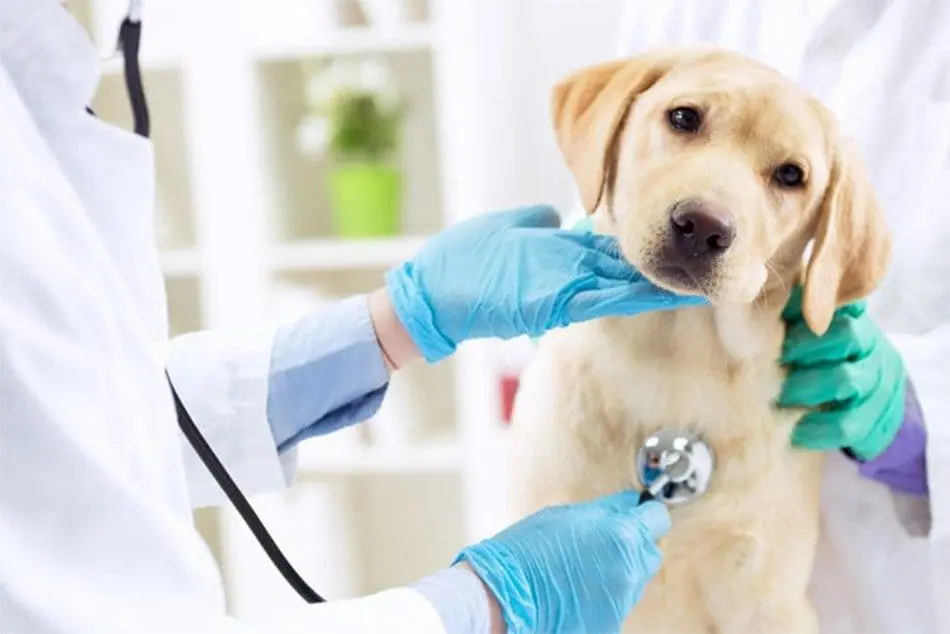
Rabies Vaccination
- N.H. RSA 434:11-13: Requires all dogs, cats, and ferrets over three months old to be vaccinated against rabies.
- Initial Vaccination: Dogs must be vaccinated within 30 days of turning three months old.
- Booster Shots: Revaccination is required at specific intervals depending on the vaccine used.
- Exemptions: Medical exemptions may be granted by a veterinarian.
Veterinary Practice Act
- N.H. RSA 332-B: Establishes the legal framework for veterinary medicine in the state.
- Licensed Veterinarians: Only licensed veterinarians can perform veterinary medicine, including surgery, diagnosis, and treatment of animals.
- Board of Veterinary Medicine: Oversees the licensing and regulation of veterinarians, ensuring adherence to ethical and professional standards.
Animal Cruelty
- N.H. RSA 644:8: Prohibits acts that injure or are detrimental to the health, safety, and welfare of any animal, including dogs.
- Examples of Cruelty: Neglecting to provide adequate food, water, shelter, or veterinary care; inflicting pain or suffering; abandoning an animal.
- Reporting: Suspected cases of animal cruelty should be reported to animal control or law enforcement.
Health Certificates
- N.H. RSA 437:13-a: Requires health certificates for dogs, cats, and ferrets transferred for a fee or donation.
- Purpose: Ensures animals are free of contagious diseases before entering new homes.
- Certificate Requirements: Issued by a licensed veterinarian within 14 days of transfer, including a physical exam and parasite screening.
Additional Considerations
- Local Ordinances: Towns and cities may have additional regulations regarding dog health and veterinary care, such as specific leash laws or waste disposal requirements.
- Responsible Pet Ownership: Beyond legal requirements, responsible pet ownership involves providing regular veterinary checkups, preventative care, and a healthy lifestyle for your dog.
Importance of Veterinary Care
- Preventative Care: Regular veterinary checkups and preventative measures like vaccinations and parasite control are crucial for maintaining your dog’s health and preventing potential health issues.
- Early Detection and Treatment: Veterinary professionals can diagnose and treat health problems early, improving your dog’s prognosis and well-being.
- Personalized Care: Veterinarians can provide tailored advice and treatment plans based on your dog’s breed, age, and individual needs.
Dog Identification and Microchipping Laws in New Hampshire
Keeping your dog safe and ensuring their return if they ever get lost is a top priority for responsible pet owners. New Hampshire has specific laws regarding dog identification and microchipping, offering valuable tools for pet recovery and owner reunification.

Dog Licensing
- N.H. RSA 466:1: Requires all dogs four months of age or older to be licensed annually with the town or city clerk’s office.
- License Tags: Licensed dogs must wear a collar with a metal tag displaying the town or city name, year of issue, and license number.
- Purpose: Dog licenses help track ownership and facilitate the return of lost dogs.
Microchipping
- No State-Mandated Microchipping: New Hampshire does not currently have a statewide law mandating microchipping for dogs.
- Highly Recommended: Despite the lack of a mandate, microchipping is highly recommended by animal welfare organizations and veterinarians as the most effective and permanent form of pet identification.
- Benefits of Microchipping:
- Microchips are tiny, implanted under the skin and contain a unique identification number linked to your contact information.
- This information can be quickly accessed by shelters and veterinary clinics using a microchip scanner, significantly increasing the chances of reuniting with your lost dog.
Animal Shelter Requirements
- N.H. RSA 437:8: Animal shelters are required to scan all incoming dogs for microchips and check for other permanent forms of identification like tattoos or ear tags.
- Importance of Updated Information: Ensure your contact information associated with your dog’s microchip is always up-to-date to maximize the chances of successful reunification.
Additional Considerations
- Local Ordinances: Some towns or cities may have additional regulations regarding dog identification, such as specific leash laws or collar requirements.
- Responsible Pet Ownership: Beyond legal requirements, responsible pet ownership involves ensuring your dog wears a collar with your contact information and keeping their microchip information updated.
Importance of Microchipping
- Permanent Identification: Microchips are permanent and cannot be lost or removed like collars or tags, providing a reliable way to identify your dog even if they are lost or stolen.
- Increased Recovery Rates: Studies show that microchipped dogs are significantly more likely to be reunited with their owners than those without microchips.
- Peace of Mind: Knowing your dog is microchipped offers peace of mind and increases the chances of a happy reunion if they ever get lost.
Dog Breeding and Genetics Laws in New Hampshire
New Hampshire has a framework of laws and regulations aimed at promoting responsible dog breeding practices and protecting animal welfare. Understanding these legal requirements is crucial for both breeders and individuals considering purchasing a puppy from a breeder.

Key Laws and Regulations
- Proposed Legislation: This bill, currently under consideration, proposes to criminalize the sale and breeding of dogs with brachycephalic (flat-faced) features, citing concerns about inherent health issues associated with the breed type.
- Controversial: The bill has faced significant opposition from dog breeders and organizations, arguing it unfairly targets responsible breeders and could negatively impact the preservation of purebred dogs.
- Current Status: The bill’s future remains uncertain as it awaits further discussion and potential amendments.
Licensing Requirements
- N.H. RSA 437:1: Requires licensing for any operation that raises and sells 50 or more puppies or 10 litters within a 12-month period.
- Purpose: This ensures larger breeding operations adhere to specific standards and regulations for animal welfare and responsible practices.
- Exemptions: Hobby breeders with fewer litters or sales are not required to obtain a license.
Health Certificates
- N.H. RSA 437:13-a: Requires health certificates for dogs, cats, and ferrets transferred for a fee or donation, including puppies sold by breeders.
- Issued by Veterinarians: Certificates must be issued by a licensed veterinarian within 14 days of transfer and include a physical exam and parasite screening.
- Purpose: Ensures puppies are free of contagious diseases and have received necessary vaccinations before entering new homes.
Animal Cruelty
- N.H. RSA 644:8: Prohibits acts that injure or are detrimental to the health, safety, and welfare of animals, including breeding practices that cause unnecessary suffering.
- Examples of Cruelty: Neglecting to provide proper care for breeding animals, failing to screen for and address genetic health issues, prioritizing profit over animal welfare.
- Reporting: Suspected cases of animal cruelty involving breeding practices should be reported to animal control or law enforcement.
Additional Considerations
- Local Ordinances: Some towns and cities may have additional regulations regarding dog breeding, such as kennel licensing or specific requirements for housing and care of breeding animals.
- Responsible Breeding Practices: Beyond legal requirements, responsible breeders prioritize the health and well-being of their breeding dogs, conduct thorough genetic testing for inherited diseases, and prioritize ethical breeding practices that avoid perpetuating health problems.
Importance of Responsible Breeding
- Preserving Breed Standards: Responsible breeders play a crucial role in maintaining the genetic integrity and characteristics of specific dog breeds.
- Promoting Animal Welfare: Ethical breeding practices prioritize the health and well-being of breeding dogs and their offspring, ensuring puppies are free from genetic health issues and receive proper care.
- Consumer Protection: Understanding the legal framework and choosing reputable breeders helps individuals avoid supporting unethical breeding practices and potential health problems in puppies.
Dog Environmental Impact Laws in New Hampshire
While dogs bring joy and companionship to our lives, their presence can also have an environmental impact. New Hampshire, with its diverse natural landscapes and commitment to environmental protection, has implemented various regulations and initiatives to encourage responsible pet ownership and minimize the environmental footprint of our furry friends.

Key Regulations and Initiatives
- Waste Management:
- N.H. RSA 437:15: Requires owners to pick up and dispose of their dog’s waste properly.
- “Scoop the Poop” Campaigns: The New Hampshire Department of Environmental Services (NHDES) promotes “Scoop the Poop” campaigns to raise awareness about the negative impacts of dog waste on water quality and public health.
- Waste Disposal Options: Dog waste bags, designated waste disposal stations, and septic systems are encouraged for responsible disposal.
- Leash Laws:
- State Parks and Trails: Leash laws are in place for most New Hampshire state parks and trails, requiring dogs to be on a leash no longer than 6 feet in length.
- Local Ordinances: Towns and cities may have specific leash laws for public spaces, requiring dogs to be leashed in parks, on sidewalks, or in designated areas.
- Purpose: Leash laws help protect wildlife, prevent dog fights, and maintain public safety in shared spaces.
- Wildlife Protection:
- N.H. Fish and Game Laws: Prohibiting dogs from harassing or chasing wildlife, especially during sensitive nesting seasons.
- Off-Leash Areas: Designated off-leash areas may have restrictions during specific times to protect wildlife.
- Responsible Dog Walking: Keeping dogs on leash and under control in natural areas helps minimize disturbance to wildlife.
- Water Quality Protection:
- Cyanobacteria Blooms: NHDES monitors and reports on the presence of cyanobacteria blooms in public waters, as these toxins can be harmful to pets and humans.
- Responsible Pet Swimming: Avoiding areas with known blooms and supervising pets while swimming in natural water bodies helps protect their health and water quality.
- Additional Considerations:
- Picking Up Trash: Responsible dog owners should pick up any trash their dog leaves behind, such as food wrappers or toys, to maintain the cleanliness of parks and natural areas.
- Sustainable Pet Products: Choosing eco-friendly pet products, such as biodegradable waste bags or recycled toys, can further minimize environmental impact.
Importance of Responsible Dog Ownership
- Protecting Ecosystems: By following waste management regulations, leash laws, and wildlife protection guidelines, dog owners can help preserve the delicate balance of New Hampshire’s natural ecosystems.
- Public Health and Safety: Responsible pet ownership minimizes the risk of water contamination, protects wildlife, and ensures the safety of other park users.
- Setting a Positive Example: By being responsible pet owners, we can encourage others to follow suit and contribute to a cleaner and healthier environment for everyone.
Beyond the Law
- Educating Others: Sharing information about responsible dog ownership and environmental impact with friends, family, and fellow dog owners can create a ripple effect of positive change.
- Supporting Local Initiatives: Participating in “Scoop the Poop” campaigns, volunteering for environmental cleanups, or donating to organizations working on wildlife conservation are additional ways to contribute.
Dog Behavioural Training Laws in New Hampshire
While dog ownership brings immense joy, it also comes with the responsibility to ensure your furry friend is well-behaved and integrated into society. New Hampshire, like many states, has specific regulations and considerations regarding dog behavioural training. Understanding these legal frameworks can empower responsible pet owners to provide their dogs with the necessary training and contribute to a safer and more harmonious environment for all.

No Specific State-Mandated Training
- Unlike some states, New Hampshire does not have a statewide law mandating specific dog training for all dogs.
- However, responsible pet ownership necessitates training your dog to ensure their safety, well-being, and the safety of others.
Local Ordinances
- Some towns and cities may have local ordinances addressing dog behaviour and training.
- These ordinances might cover topics like:
- Leash requirements: Enforcing leash laws in public spaces to prevent dog fights and ensure public safety.
- Nuisance barking: Addressing excessive barking that disturbs the peace and tranquility of the community.
- Aggressive dog behaviour: Requiring specific training or interventions for dogs displaying aggressive tendencies.
Animal Cruelty Laws
- New Hampshire’s animal cruelty laws (N.H. RSA 644:8) prohibit acts that cause unnecessary suffering or distress to animals.
- This includes neglecting to provide proper training and socialization, leading to behavioural problems and potential harm to the dog or others.
Service Dog Training
- New Hampshire adheres to the Americans with Disabilities Act (ADA) guidelines regarding service dogs.
- Service dogs are individually trained to perform specific tasks for individuals with disabilities.
- While there is no state-mandated training for service dogs, they must be well-behaved and under control in public spaces.
Importance of Responsible Training
- Beyond legal requirements, responsible dog training offers numerous benefits:
- Improved communication and understanding: Training strengthens the bond between owner and dog, allowing for better communication and control.
- Enhanced safety and well-being: Proper training reduces the risk of accidents, fights, and unwanted behaviours, ensuring a safe and enjoyable life for your dog.
- Public safety and harmony: Well-trained dogs contribute to a safer and more harmonious environment for everyone in the community.
Choosing a Dog Trainer
- If you seek professional dog training assistance, consider the following:
- Qualifications and experience: Look for trainers with relevant certifications, experience, and positive feedback from previous clients.
- Training methods: Choose trainers who utilize positive reinforcement and humane training methods based on scientific principles.
- Compatibility and communication: Ensure the trainer’s approach aligns with your values and communication style for optimal results.
Additional Considerations
- Socialization: Exposing your dog to different people, animals, and environments from a young age is crucial for their behavioural development and adaptability.
- Ongoing training: Dog training is an ongoing process, requiring consistent reinforcement and practice for lasting results.
- Seeking professional help: If you encounter behavioural challenges beyond your ability to manage, consult with a qualified dog trainer or animal behaviourist for guidance and support.
Dog Protection and Rescue Laws in New Hampshire
New Hampshire recognizes the importance of protecting and rescuing dogs. The state has implemented various laws and regulations to ensure the well-being of dogs, address animal cruelty, and provide avenues for rescue and adoption. Understanding these legal frameworks empowers individuals to report abuse, support responsible pet ownership, and contribute to a safer environment for all dogs.

Animal Cruelty
- N.H. RSA 644:8: Prohibits acts that injure, torture, neglect, or abandon animals, including dogs.
- Examples of Cruelty:
- Failing to provide adequate food, water, shelter, or veterinary care.
- Subjecting dogs to physical or emotional abuse.
- Abandoning dogs without proper care.
- Reporting: Suspected cases of animal cruelty should be reported to animal control or law enforcement immediately.
Rabies Control
- N.H. RSA 434:11-13: Requires all dogs, cats, and ferrets over three months old to be vaccinated against rabies.
- Purpose: Prevents the spread of rabies, a potentially fatal disease for both animals and humans.
- Enforcement: Local animal control authorities enforce rabies vaccination laws and may impound unvaccinated dogs.
Dangerous Dog Laws
- N.H. RSA 466:14-16: Defines criteria for declaring a dog “dangerous” or “vicious.”
- Criteria:
- Dogs with a history of biting or attacking humans or other animals.
- Dogs exhibiting aggressive behavior that poses a threat to public safety.
- Procedures:
- Dangerous dog designations may involve leash restrictions, muzzling requirements, or even confinement.
- Appeals and behavioral assessments are often available.
Impoundment and Rescue
- N.H. RSA 436: Local authorities can impound stray or lost dogs found without a valid rabies tag.
- Holding Period: Impounded dogs are held for a minimum of 7 days to allow owners time to reclaim them.
- Rescue Organizations: Unclaimed dogs may be transferred to animal shelters or rescue organizations for adoption.
Responsible Pet Ownership
- New Hampshire laws emphasize responsible pet ownership as crucial for dog protection.
- This includes:
- Providing proper food, water, shelter, and veterinary care.
- Training and socializing dogs to prevent behavioral problems.
- Keeping dogs leashed and under control in public spaces.
- Picking up after dogs and disposing of waste responsibly.
Supporting Dog Rescue and Adoption
- Numerous animal shelters and rescue organizations in New Hampshire work tirelessly to care for and find loving homes for dogs in need.
- Individuals can support these organizations through:
- Volunteering time and skills.
- Making financial donations.
- Adopting a dog in need of a forever home.
Additional Considerations
- Local Ordinances: Towns and cities may have additional regulations specific to their communities, such as leash laws or breed restrictions.
- Reporting Concerns: If you witness suspected animal cruelty or neglect, do not hesitate to report it to the appropriate authorities.
- Choosing a Rescue or Shelter: When considering adopting a dog, research reputable organizations with a commitment to animal welfare and responsible practices.
Dog Entertainment and Work Laws in New Hampshire
Dogs bring joy and companionship to our lives, and their unique abilities can also contribute to entertainment and work in various ways. However, New Hampshire prioritizes animal welfare and has implemented specific laws and regulations to ensure the ethical treatment of dogs involved in these activities. Understanding these legal frameworks is crucial for organizers, participants, and the general public to ensure responsible practices and a positive experience for both humans and dogs.

Animal Cruelty Laws
- N.H. RSA 644:8: Prohibits acts that injure, torture, neglect, or exploit animals, including dogs.
- Application to Entertainment and Work: These laws apply to any situation where dogs are used for entertainment or work, ensuring their well-being and preventing unnecessary suffering.
- Reporting Concerns: If you witness suspected animal cruelty or neglect, report it to animal control or law enforcement immediately.
Specific Regulations for Dog Activities
- Dog Racing:
- New Hampshire does not currently have any regulated dog racing tracks.
- However, neighboring states with dog racing have strict regulations regarding track safety, dog welfare, and veterinary care.
- Dog Shows and Competitions:
- The American Kennel Club (AKC) and other dog show organizations establish guidelines for ethical breeding, responsible handling, and ensuring the well-being of dogs participating in shows and competitions.
- These guidelines often address factors like:
- Age restrictions for participating dogs.
- Proper training and handling methods.
- Adequate rest and hydration for dogs.
- Prevention of excessive heat or cold exposure.
- Working Dogs:
- Dogs trained for specific work tasks, such as search and rescue, law enforcement, or therapy, require specialized training and handling.
- Regulations and guidelines may exist for specific working dog organizations and agencies, focusing on:
- Rigorous training and certification programs.
- Proper equipment and safety protocols.
- Ongoing health and well-being monitoring for working dogs.
Importance of Responsible Practices
- Beyond legal requirements, responsible practices are crucial for dog entertainment and work activities:
- Prioritizing Animal Welfare: The well-being of the dog must always be the top priority, ensuring they are treated humanely and not subjected to stress, exhaustion, or pain.
- Proper Training and Handling: Dogs involved in entertainment or work activities require specialized training and handling to ensure their safety and effectiveness.
- Veterinary Care and Monitoring: Regular veterinary checkups, preventative care, and monitoring for health issues are essential for working and performing dogs.
Additional Considerations
- Local Ordinances: Towns and cities may have additional regulations regarding specific dog activities, such as restrictions on dog shows in public spaces or noise ordinances affecting dog training facilities.
- Choosing Responsible Organizations: When participating in dog-related entertainment or utilizing working dog services, choose organizations with a strong commitment to ethical practices and animal welfare.
- Public Awareness: Educating the public about responsible dog entertainment and work practices can help promote awareness and encourage ethical treatment of these animals.
Dog Technology and Innovation Laws in New Hampshire
The pet tech industry is booming, offering innovative products and services to enhance the lives of dogs and their owners. New Hampshire, like many states, is navigating this evolving landscape and considering how to regulate these technologies while ensuring the well-being of animals.

Current Legal Framework
- Limited Specific Laws: Currently, New Hampshire does not have specific laws directly regulating pet tech products or innovations in dog health technology.
- Focus on Animal Welfare: Existing animal cruelty laws (N.H. RSA 644:8) apply to all situations, including the use of technology, and prohibit acts that cause unnecessary suffering or distress to animals.
- Consumer Protection and Product Safety: General consumer protection and product safety laws may apply to pet tech products, ensuring they meet safety standards and do not pose a risk to pets.
Key Considerations for Responsible Pet Tech
- Data Privacy and Security: Pet tech devices often collect and transmit data about pets’ activities, health, and location.
- Responsible companies should implement robust data security measures and provide clear privacy policies to users.
- Users should be aware of the data collected and how it is used.
- Animal Welfare and Ethical Use: Technology should be used to enhance the well-being of dogs, not exploit them.
- Devices should be designed and used in a way that prioritizes animal comfort and safety.
- Training and positive reinforcement should be the foundation for using pet tech, avoiding methods that cause stress or anxiety.
- Transparency and User Education: Companies should provide clear information about how their products work and the potential benefits and limitations.
- Users should understand the technology they are using and make informed decisions about its suitability for their dog.
Emerging Regulatory Landscape
- Potential for Future Legislation: As the pet tech industry continues to evolve, New Hampshire and other states may consider enacting specific laws to address potential concerns and ensure responsible use of technology.
- This could involve regulations on data privacy, product safety standards, and ethical considerations for animal welfare.
- Importance of Collaboration: Collaboration between policymakers, industry stakeholders, and animal welfare organizations is crucial for developing a responsible and effective regulatory framework for pet tech.
Examples of Pet Tech Products and Considerations
- Activity Trackers: These devices monitor a dog’s activity levels, sleep patterns, and calorie expenditure.
- Considerations: Data privacy, accuracy of data, potential for misinterpretation of data.
- Smart Feeders and Water Bowls: These devices allow for remote monitoring and controlled feeding of pets.
- Considerations: Potential for malfunction leading to over- or underfeeding, cybersecurity risks.
- GPS Tracking Collars: These collars provide real-time location tracking for lost or wandering dogs.
- Considerations: Data privacy, battery life, potential for malfunction or signal loss.
- Telemedicine for Pets: This technology allows for virtual consultations with veterinarians.
- Considerations: Limitations of remote diagnosis, importance of qualified veterinarians.
Human Coexistence Laws in New Hampshire
New Hampshire recognizes the profound bond between humans and dogs. While there are no specific “human coexistence laws” in the state, various regulations and initiatives contribute to a positive and harmonious environment for both canine companions and their owners. Understanding these frameworks empowers individuals to create a safe and enriching co-existence with their furry friends.
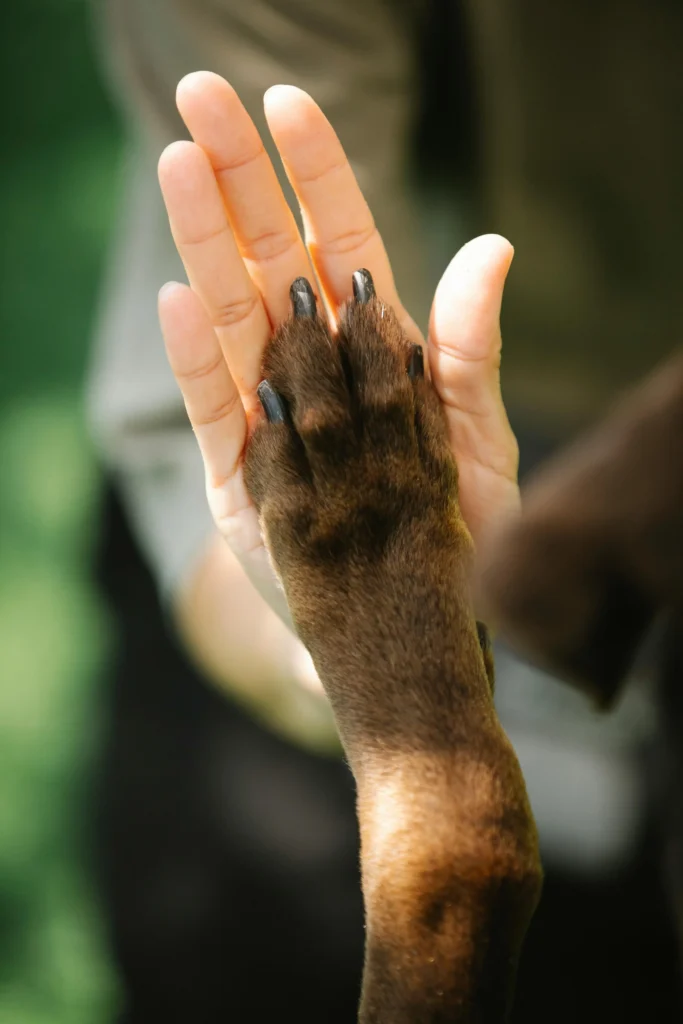
Key Legal Frameworks and Initiatives
- Animal Cruelty Laws:
- N.H. RSA 644:8 prohibits acts that injure, torture, neglect, or abandon animals, including dogs.
- This ensures dogs are treated humanely and have their basic needs met, contributing to a positive human-dog relationship.
- Reporting suspected animal cruelty is crucial for protecting dogs and fostering a safe environment.
- Responsible Pet Ownership:
- New Hampshire emphasizes responsible pet ownership as fundamental to successful human-dog coexistence.
- This includes:
- Providing proper food, water, shelter, and veterinary care.
- Training and socializing dogs to prevent behavioral problems.
- Keeping dogs leashed and under control in public spaces.
- Picking up after dogs and disposing of waste responsibly.
- Public Access:
- Many public spaces in New Hampshire, including parks and trails, allow dogs with responsible owners.
- Leash laws and designated off-leash areas ensure safety and minimize conflict between dogs and other park users.
- Responsible dog owners contribute to a positive and inclusive environment for everyone.
- Animal-Assisted Therapy:
- New Hampshire recognizes the therapeutic benefits of dogs for individuals with various needs.
- Regulations and guidelines exist for therapy animals, ensuring their suitability and responsible handling.
- Animal-assisted therapy can strengthen the human-dog bond and provide valuable support for individuals.
- Service Dogs:
- The Americans with Disabilities Act (ADA) guarantees access for individuals with service dogs in public spaces.
- Service dogs are individually trained to perform specific tasks for their owners.
- Respecting and understanding the role of service dogs fosters a more inclusive and supportive environment.
Additional Considerations
- Local Ordinances: Towns and cities may have additional regulations specific to their communities, such as leash laws or breed restrictions.
- Responsible Breeding: Choosing reputable breeders who prioritize ethical practices and healthy dogs contributes to a positive foundation for human-dog relationships.
- Positive Reinforcement Training: Utilizing positive reinforcement and humane training methods strengthens the bond between humans and dogs, promoting trust and understanding.
Beyond the Law
- Socialization: Exposing dogs to different people, animals, and environments from a young age is crucial for their development and ability to coexist harmoniously with humans.
- Ongoing Learning: Continuous learning and education about dog behavior and training can improve communication and strengthen the human-dog bond.
- Community Engagement: Participating in dog-friendly events, joining dog clubs, or volunteering at animal shelters can foster a sense of community and shared responsibility for the well-being of dogs.
Other Relevant Dog Laws in New Hampshire
Canine Good Citizen Programs and Legal Benefits
What it is:The American Kennel Club (AKC) Canine Good Citizen (CGC) program teaches dogs basic manners and social skills to be well-behaved in public settings.
Benefits in New Hampshire: While not legally mandated, CGC certification can demonstrate responsible dog ownership and potentially:
- Reduce insurance premiums: Some pet insurance companies offer discounts for CGC-certified dogs.
- Increase housing options: Landlords may be more receptive to tenants with CGC-certified dogs.
- Enhance public access: Certain facilities (e.g., therapy dog visits) might have CGC as a prerequisite.
Dog Insurance and Coverage Laws
Dog insurance: Not mandatory in New Hampshire, but highly recommended.Coverage: Policies vary, but typically cover:
- Veterinary expenses for accidents and illnesses
- Third-party liability (if your dog injures someone or damages property)
Factors affecting cost: Breed, age, health history, and coverage level.
Laws Regarding Dogs in Hot Cars and Animal Endangerment
New Hampshire RSA 437:13:Prohibits leaving an animal in a vehicle in conditions that could endanger its health or safety.
Penalties: Fines and potential animal cruelty charges.Importance: Vehicles can quickly become dangerously hot, even in moderate temperatures.
Legal Aspects of Dog Parks and Shared Spaces
- Leash laws: Most municipalities have leash laws requiring dogs to be on leash in public spaces, except for designated off-leash areas like dog parks.
- Dog park etiquette: Responsible dog ownership applies, including cleaning up waste, keeping aggressive dogs separated, and respecting other park users.
- Shared responsibility: Dog owners are liable for their pets’ actions, even in dog parks.
Dog-Related Property Damage and Homeowner’s Insurance
Homeowner’s insurance: Typically covers third-party liability for dog bites or property damage, but specific terms and exclusions may apply.Dog owner responsibility: Ultimately responsible for any damage caused by their dog, regardless of insurance coverage.
Service and Working Dog Laws in Employment and Public Access
Federal and state laws:Protect the rights of service animals (e.g., guide dogs, hearing dogs) to accompany their handlers in most public places and workplaces.
Fake service animals: Illegal to misrepresent a pet as a service animal.
Animal Welfare and Protection Laws Against Neglect and Abandonment
New Hampshire RSA 437: Protects animals from cruelty, neglect, and abandonment.Reporting: If you suspect animal cruelty, contact your local animal control agency or the NHSPCA.Importance: Ensuring the well-being of all animals.
This article has explored various dog-related laws in New Hampshire, emphasizing responsible ownership. Key points include:
- Canine Good Citizen (CGC) programs offer training and potential benefits like insurance discounts and easier housing.
- Dog insurance is highly recommended, covering veterinary expenses and third-party liability.
- Laws protect animals from neglect, abandonment, and endangerment (e.g., leaving dogs in hot cars).
- Leash laws and dog park etiquette ensure safety and shared enjoyment of public spaces.
- Service dog laws safeguard their access to public areas and workplaces.
Compliance with dog laws is crucial for both dog owners and society. Responsible dog ownership fosters:
- Animal welfare: Ensures dogs’ safety, health, and well-being.
- Public safety: Minimizes risks of bites, injuries, and property damage.
- Community harmony: Promotes responsible pet ownership and respect for shared spaces.
By understanding and adhering to dog laws, we can create a safer and more enjoyable environment for everyone.
FAQs
Are there breed-specific restrictions in New Hampshire?
No, New Hampshire does not have any statewide breed-specific bans or restrictions on dog ownership. However, some municipalities may have local ordinances in place, so it’s always best to check with your local animal control office.
What are the requirements for licensing my dog?
All dogs over the age of four months in New Hampshire must be licensed annually. This can be done through your local town clerk or online. The license fee varies depending on the town and whether your dog is spayed/neutered.
What happens if my dog bites someone?
New Hampshire follows a “strict liability” law for dog bites, meaning the owner is responsible for any injuries caused by their dog, regardless of the dog’s history or the circumstances of the bite. This could involve paying for medical bills, lost wages, and other damages.
Can I bring my dog to public beaches in New Hampshire?
The regulations for dogs on beaches vary depending on the specific beach. Some beaches have designated dog-friendly areas, while others prohibit dogs entirely. It’s crucial to check the signage and local ordinances before bringing your dog to the beach.
What should I do if I lose my dog?
If your dog goes missing, immediately contact your local animal control office and file a lost pet report. You should also check with nearby shelters and post information about your dog on social media and lost pet websites.







